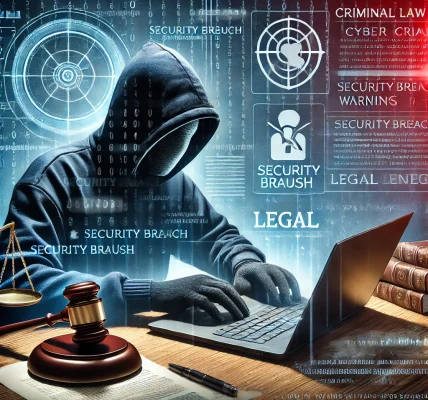Introduction
Forensic science plays a critical role in modern criminal investigations by using scientific techniques to analyze evidence, solve crimes, and ensure justice. From fingerprint analysis to DNA profiling, forensic science has revolutionized the legal system and improved the accuracy of criminal investigations.
In this blog, we will explore how forensic science works, its key techniques, and its impact on criminal cases.
1. What is Forensic Science?
Forensic science is the application of scientific methods to criminal investigations. It involves collecting, preserving, and analyzing physical and digital evidence to reconstruct crimes and identify suspects.
Key Objectives of Forensic Science
- Establishing the identity of a suspect or victim
- Reconstructing the sequence of events in a crime
- Determining the cause and time of death in homicide cases
- Linking physical evidence to a suspect or crime scene
- Providing expert testimony in court to support the legal process
2. Key Forensic Science Techniques
There are several forensic techniques used in criminal investigations. Some of the most common include:
A. DNA Analysis
DNA profiling is one of the most powerful forensic tools. It helps:
- Identify suspects by matching their DNA to evidence from a crime scene.
- Exonerate wrongly accused individuals.
- Establish paternity or familial connections in legal cases.
B. Fingerprint Analysis
Fingerprint evidence is unique and can help solve crimes by:
- Matching fingerprints found at a crime scene to suspects.
- Confirming or ruling out potential leads.
- Establishing a suspect’s presence at a crime scene.
C. Ballistics and Firearm Analysis
Firearm analysis helps investigators determine:
- The type of gun used in a crime.
- Whether a bullet came from a specific firearm.
- The shooting distance and angle, which can reconstruct crime scenes.
D. Toxicology Reports
Toxicology testing determines the presence of:
- Drugs or alcohol in a person’s system.
- Poisons or chemicals that could indicate foul play.
- The cause of death in cases of suspected poisoning or overdose.
E. Digital Forensics
With the rise of cybercrime, digital forensics plays an essential role in:
- Recovering deleted files or messages.
- Analyzing hacked accounts and digital fraud.
- Tracking online criminal activity.
F. Forensic Pathology
Forensic pathologists perform autopsies to:
- Determine the cause and time of death.
- Identify injuries and their sources.
- Provide expert testimony in court.
3. The Role of Forensic Experts in Criminal Cases
Forensic scientists work closely with law enforcement agencies, prosecutors, and defense attorneys. Their roles include:
A. Collecting and Preserving Evidence
Proper evidence collection is essential to ensure its admissibility in court. Experts:
- Secure crime scenes to prevent contamination.
- Use specialized tools to collect samples without damaging evidence.
B. Analyzing Evidence in Laboratories
Once collected, forensic experts analyze evidence in laboratories using advanced techniques such as:
- Microscopic examination
- Chemical testing
- DNA sequencing
C. Providing Expert Testimony
Forensic experts often testify in court to explain their findings. Their testimony can:
- Support the prosecution or defense arguments.
- Clarify scientific evidence for judges and juries.
- Influence the outcome of trials by proving guilt or innocence.
4. The Impact of Forensic Science on Criminal Justice
Forensic science has transformed the criminal justice system in several ways:
A. Improving Accuracy and Reducing Wrongful Convictions
DNA evidence has led to the exoneration of many wrongfully convicted individuals, proving their innocence beyond doubt.
B. Strengthening Criminal Investigations
Scientific methods help investigators connect evidence to suspects, solving cases more efficiently.
C. Enhancing Public Trust in the Legal System
The use of forensic science ensures that justice is based on evidence, increasing public confidence in the legal system.
5. Challenges and Limitations of Forensic Science
Despite its benefits, forensic science faces several challenges:
A. Human Error and Contamination
Errors in evidence collection or laboratory analysis can compromise cases.
B. Interpretation and Bias
Forensic evidence must be interpreted correctly to avoid wrongful convictions.
C. Cost and Resource Limitations
Advanced forensic testing can be expensive and may not be available in all cases.
Conclusion
Forensic science is a powerful tool in criminal investigations, helping law enforcement solve cases accurately and fairly. From DNA analysis to digital forensics, its role in the justice system is invaluable. While challenges remain, continued advancements in forensic science will further improve the accuracy, reliability, and fairness of criminal investigations.




